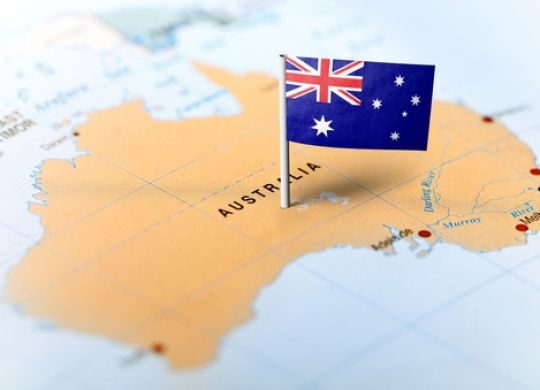Employment in Ireland for foreigners: working conditions, the procedure for obtaining a work permit and vacancies for expats
Table of contents
- Working conditions in Ireland
- Where do expats work in Ireland?
- Basic requirements for expats to work in Ireland
- How to find a job in Ireland?
- How can a foreigner get a job in Ireland?
- Types of work visas and work permits in Ireland
- Requirements for obtaining a work permit in Ireland
- An approximate list of documents for obtaining a work permit in Ireland
- How long is a work permit valid in Ireland?

Ireland is the only English-speaking country in the European Union that attracts expats with employment prospects and a high standard of living. Find out what specialists are in short supply in the Irish labor market and how to obtain a work permit for a foreigner in the country
The Irish job market offers many opportunities for both local workers and expats. However, it also has one significant drawback - very high competition. To get a job here, your resume must stand out from other candidates.
Also, if you are not an EU/EEA citizen but want to work in Ireland, you will need to obtain a visa and work permit from the Irish immigration authorities before you move.
How can an expat get a job in Ireland? The procedure for obtaining a visa in Ireland, as well as the peculiarities of the local labor market, is discussed in detail below.
Working conditions in Ireland
In general, working life in Ireland is similar to many other European countries. Working days are from Monday to Friday, from 9:00 a.m. to 5:30 p.m. After every 4 and a half hours, employees have the opportunity to rest for 15 minutes. Foreigners, as well as citizens of the country, can work a maximum of 48 hours a week.
Paid vacation is at least 4 weeks per year.
The average salary increases slightly every year and averages just under €40,000 per year.
Where do expats work in Ireland?
One of the best ways to get a job in Ireland as a foreigner is to look at the industries with the most vacancies. In particular, most expats work here in the service sector. Given that Ireland is a popular tourist destination, the country has a persistent shortage of workers in the service, hospitality and tourism sectors. In these areas, both qualified specialists and workers without experience can find work.
Another area where expats can find ample job opportunities is the technology sector. The small island nation is now home to many tech giants such as Google, Apple, Facebook and Microsoft.
The headquarters of the following major companies are also located in Ireland: Ryanair, IBM, Intel, Pfizer and Twitter.
In addition, Ireland faces a shortage of personnel in certain industries. In particular, expats with work experience in the following fields will have a particular advantage when looking for work: business and finance, engineering (including biomedical engineers, chemical engineers, electrical engineers, energy engineers), healthcare workers, chefs, transport and logistics .
To move, travel or work safely in a new country, you will need health insurance. You can apply for an extended policy on our website here.
Basic requirements for expats to work in Ireland
Job requirements vary by position, but there are a few conditions that are fairly standard. First, knowledge of the language: the national language of Ireland is English. Irish is also spoken in Ireland, but only Irish civil servants (and mostly present on the Aran Islands) are supposed to know it.
Higher education will also be an advantage. In general, if you do not have a university degree, the immigration authorities may not grant you a work permit.
How to find a job in Ireland?
Usually, most expats look for a job on the Internet, the most popular sites are: Irish Jobs, Jobs.ie, Monster.ie, RecruitIreland.
How can a foreigner get a job in Ireland?
If you want to move to work in Ireland, first of all you need to find out whether you need a visa for this.
In particular, EU/EEA citizens can come, find housing, and then start looking for work.
On the other hand, non-EU/EEA nationals will need an appropriate visa to live and work in Ireland.
Types of work visas and work permits in Ireland
There are around nine different types of work permits in Ireland, but the most popular are the Critical Skills Work Permit and the General Work Permit.
1. The Critical Skills Work Permit is granted to highly skilled international workers to encourage them to come to Ireland and fill skills shortages in certain highly skilled occupations. In particular, Ireland currently needs professionals in the fields of natural and social sciences, engineering, health care, education, architecture, etc.
2. General Work Permit – This work permit in Ireland is issued to professionals who do not fall under critical skills work. There is no list of relevant professions for obtaining a general employment permit.
3. The following types of work permits are also available in Ireland:
- Employment permit for a dependent/partner/spouse.
- Permission to transfer within the company.
- Internship permit.
- Permission to work in the sports and cultural sphere.
- Work permit under an exchange agreement, etc.
Requirements for obtaining a work permit in Ireland
To be eligible for a work visa to Ireland, an expat must:
- Have an employment contract or job offer from an Irish company.
- For all types of permit, except employment of people with critical skills, the employer must pass a labor market needs test, which checks whether there is an Irish or EU/EEA/Swiss national who could do the job instead of a foreigner.
- If you are applying for a critical skills work permit, your minimum annual salary must be at least €30,000 or €80,000 depending on the occupation. For a general work permit - at least 30,000 euros, and for all others - at the level of the national minimum wage.
An approximate list of documents for obtaining a work permit in Ireland
- A copy of the passport showing your photo, signature and personal data.
- A passport-sized photograph that meets Irish requirements.
- A copy of the employment contract signed by you and the employer.
- Data of the contact person: full name, position in the company, phone number and e-mail address.
- Relevant registration number/PIN or company license number issued by the relevant Irish regulatory authorities or government ministers.
- Copy of letter of support from IDA/Enterprise Ireland, if applicable.
- Details of your employer such as company registration number, address, name and relevant certificates from authorized bodies.
- Details of your job, such as salary, job duties, responsibilities and duration.
How long is a work permit valid in Ireland?
The Irish work visa itself is only valid for a maximum of 90 days. However, the duration of the work permit in the country depends on the specific permit.
Most work permits are initially issued for 24 months and can be extended for up to five years. Once you have lived in Ireland on a work permit (work visa) for five consecutive years, you can apply for permanent residence in Ireland.
Ireland offers expats exciting career opportunities with excellent work-life balance, strong leadership, employee benefits and a high quality of life. Therefore, be sure to pay attention to this small island state in the north of Europe when planning your employment abroad.
As a reminder, read this article in more detail about the available ways to apply for a residence permit in Ireland and citizenship.
Ihor Usyk - head of Visit World's legal department
Products from Visit World for a comfortable trip:
Checklist for obtaining a visa and necessary documents in Ireland;
Legal advice on immigration to Ireland;
Travel insurance for foreigners in Ireland;
Medical insurance all over the world.
Recommended articles
3 min
Expats
Moving to Ireland: residence permit, citizenship and other important details
Thousands of migrants around the world choose Ireland as an ideal place to live. And it is not surprising, as the country is known for its picturesque countryside, clean environment and high standard of living. Learn more about the possible ways to obtain Irish citizenship
09 Jul. 2024
More details3 min
Treatment
Medicine in Ireland: insurance, medical card and necessary documents for treatment
The Irish healthcare system is organized in a rational and well-thought-out manner. Doctors in this country are highly qualified, and medical facilities are equipped with modern technology. However, there are frequent complaints about long queues and a limited range of free services. Learn more about the peculiarities of medical care in Ireland
18 Jul. 2024
More details2 min
Work
Australia has a high standard of living and good career prospects, which is why this country attracts tens of thousands of migrants from all over the world every year. Learn more about the main provisions of Australia's migration policy in 2025, as well as the procedure for obtaining an Australian work visa and vacancies in high demand in the country
03 Feb. 2025
More details3 min
Residence permit
Moving to Israel in 2024: Non-Jewish immigration procedure and return rules for Jews
Every year, thousands of foreigners move to Israel for permanent residence and obtain citizenship. Find out how to issue the necessary documents for people with Jewish roots and other categories of expats in 2024
15 Jul. 2024
More detailsAll materials and articles are owned by VisitWorld.Today and are protected by international intellectual property regulations. When using materials, approval from VisitWorld.Today is required.
